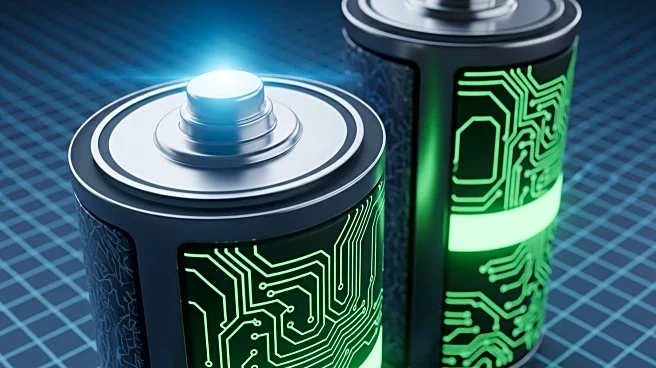What is the story about?
What's Happening?
Researchers at the Massachusetts Institute of Technology (MIT) have developed a new mathematical model that could significantly improve the performance of lithium-ion batteries. This model, based on coupled ion-electron transfer theory, offers a more accurate prediction of electrochemical reactions than the traditional Butler-Volmer equation. The study involved analyzing over 50 combinations of electrolytes and electrodes, leading to a database that informed the new model. This advancement allows battery companies to fine-tune their designs, potentially enhancing charging speeds and reducing degradation rates. Unlike many experimental breakthroughs, this model can be implemented immediately, offering a practical framework for current battery designs without necessitating a complete overhaul.
Why It's Important?
The development of this model is crucial for the technology sector, particularly in improving the efficiency and longevity of batteries used in consumer electronics, electric vehicles, and other applications. Faster charging and longer-lasting batteries could lead to significant advancements in portable technology and electric transportation, reducing reliance on frequent charging and enhancing user convenience. This could also drive innovation in renewable energy storage solutions, supporting broader environmental goals. Companies in the battery manufacturing industry stand to benefit from reduced research and development costs, as the model provides a clear path to optimizing existing technologies.
What's Next?
Battery companies are expected to begin integrating this model into their design processes, potentially leading to new product releases with improved battery performance. The scientific community may further investigate the model to validate its effectiveness and explore additional applications. As the model gains acceptance, it could influence industry standards and drive competitive advancements among manufacturers. Stakeholders in the tech and automotive industries will likely monitor these developments closely, considering the potential impact on product offerings and market dynamics.
Beyond the Headlines
This development may also have ethical and environmental implications, as improved battery technology could reduce electronic waste and the environmental impact of battery production. The model's ability to enhance battery lifespan aligns with sustainability goals, potentially influencing corporate strategies and consumer choices. Additionally, the research highlights the importance of interdisciplinary collaboration in scientific advancements, combining expertise from engineering, mathematics, and material science.
















